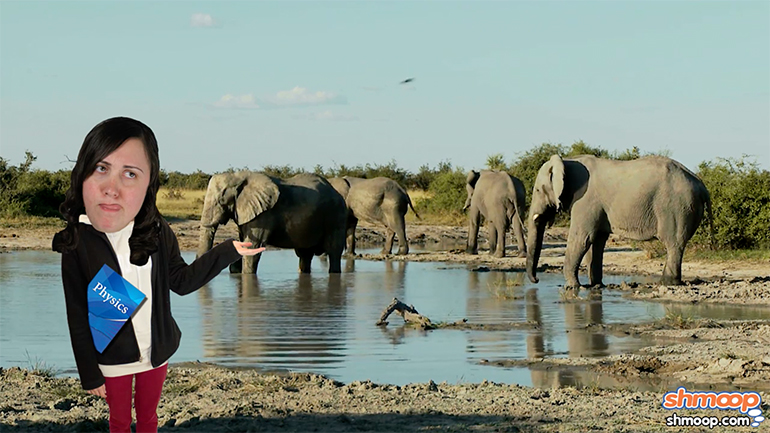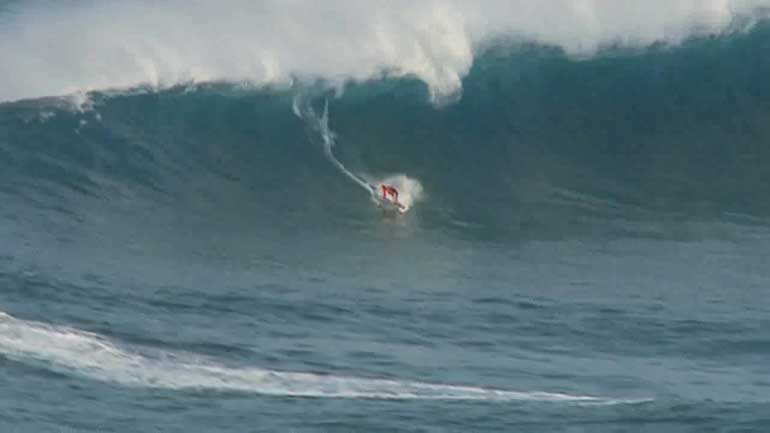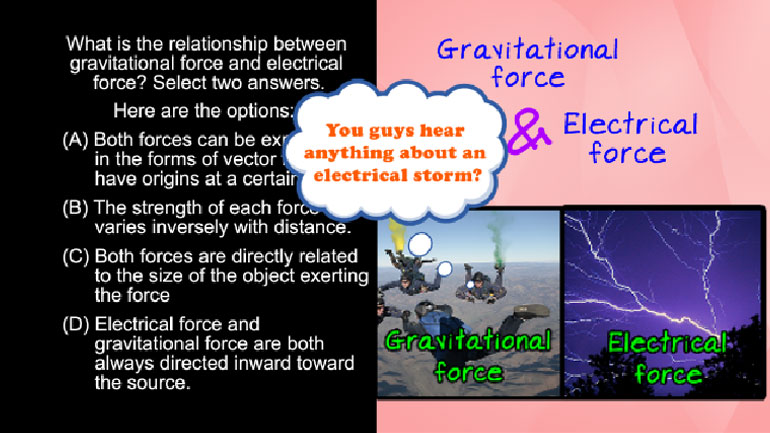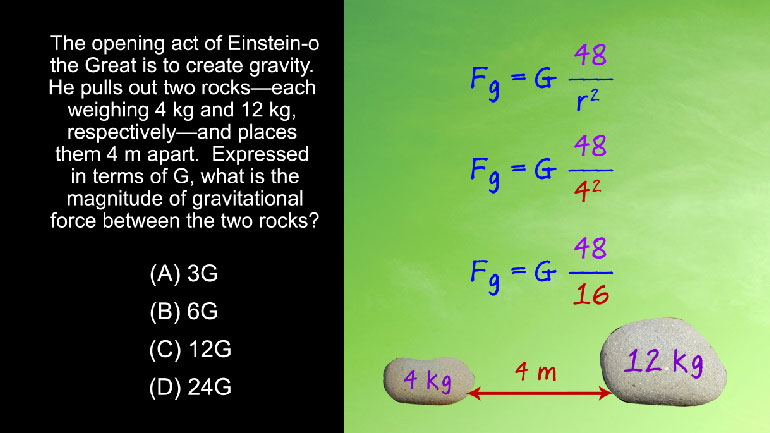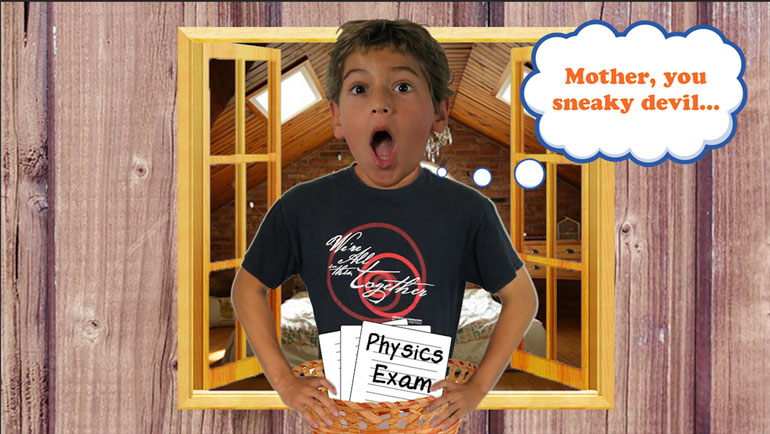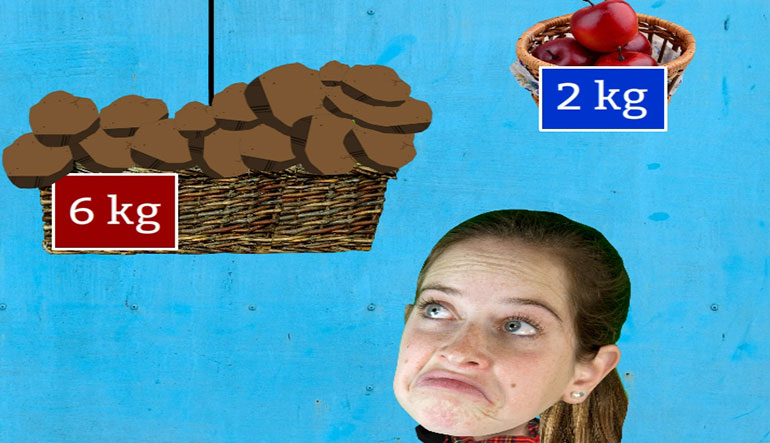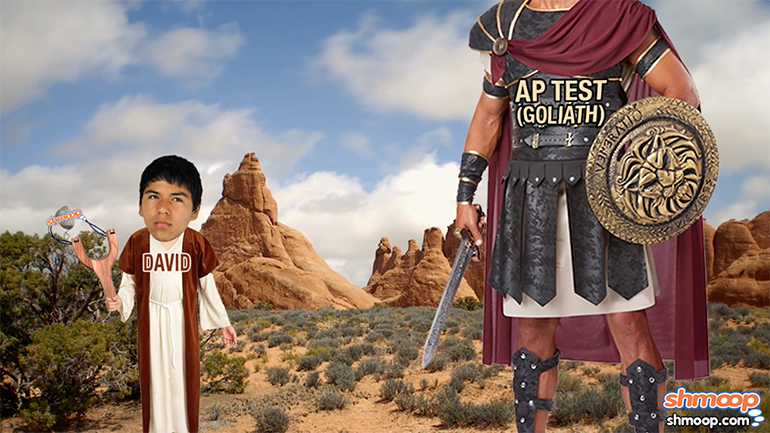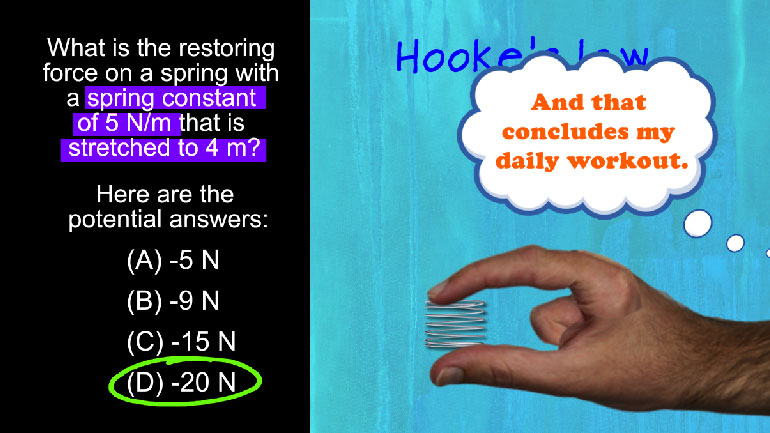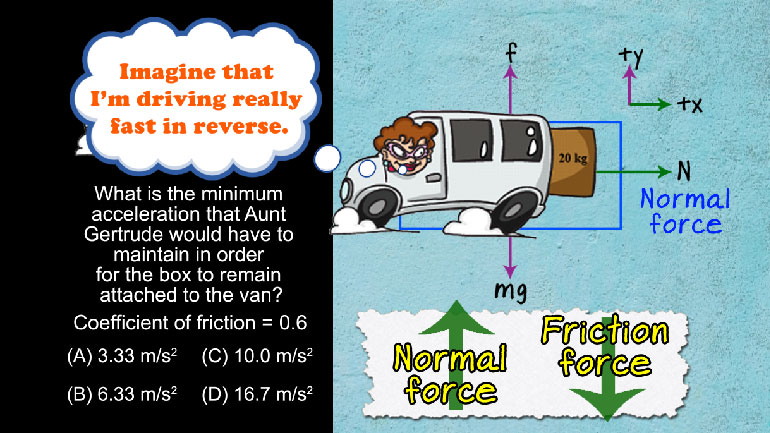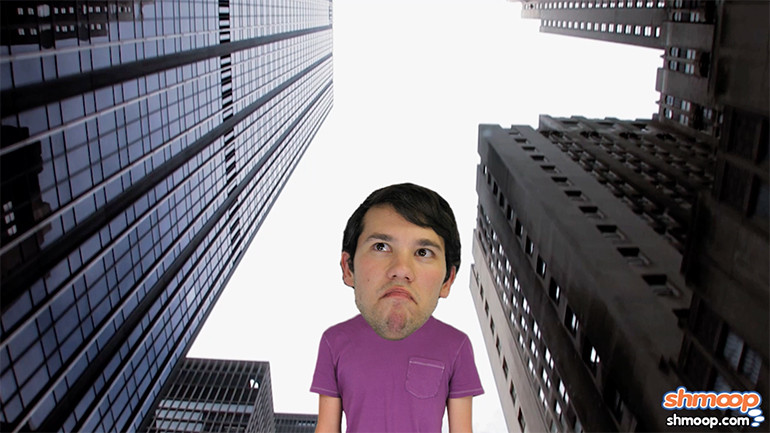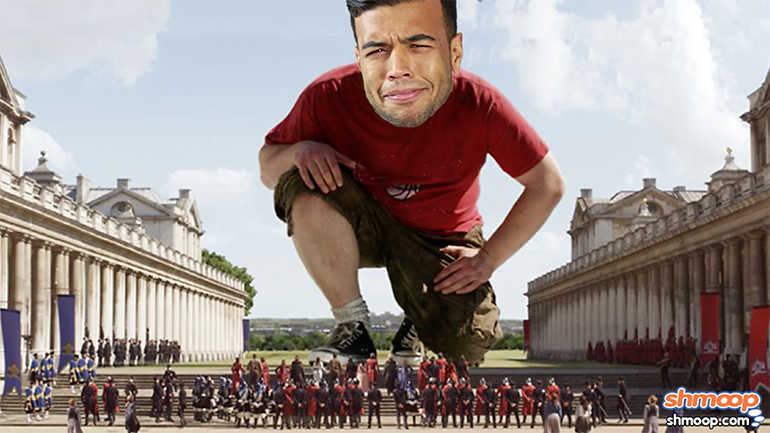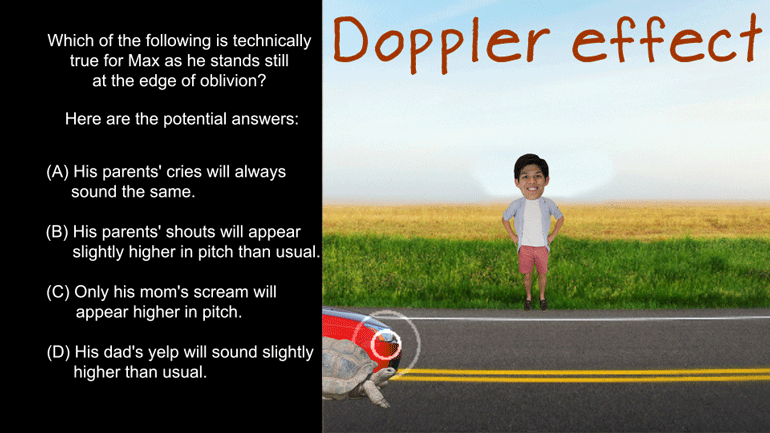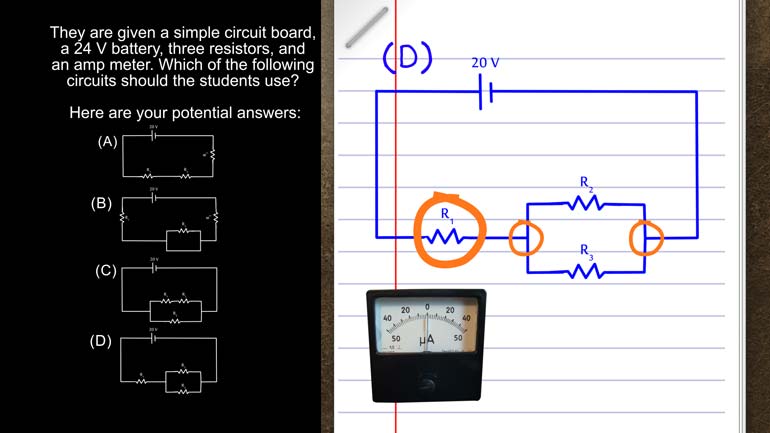ShmoopTube
Where Monty Python meets your 10th grade teacher.
Search Thousands of Shmoop Videos
Object Interaction and Forces Videos 13 videos
If there's one good thing about the heat death of the universe, it's that we'll all have an excellent excuse for dodging physics homework.
The real moral of the story here is just "don't get in the way of elephants or tigers." That is not the kind of kinetic energy you want to absorb.
Hi there. We'd like to wave hello to you, but the internet isn't letting us. So instead, accept this fun question about waves and physics! It's alm...
AP Physics 1: 3.1 Object Interaction and Forces 202 Views
Share It!
Description:
It takes a tiny village to build a tiny renewable energy source.
Transcript
- 00:02
All right here's your shmoop du jour brought to you by little tiny people.
- 00:05
Sure it would be irresponsible to rule over an island full of 6-inch tall people but [Giant man kneeling over tiny people]
- 00:11
probably also feel pretty cool at least for a while. All right check out the [Giant man tied to the floor by all the small people]
- 00:15
following picture, this drippy thing here. All right in the satire Gulliver's [Picture of a mug on its side dripping water onto a cog]
- 00:19
Travels the main character ends up on the island of Lilliput which is
Full Transcript
- 00:22
inhabited by tiny people. To supply power to the island the Lilliputians chief
- 00:27
electrical engineer has rigged that tiny paddle wheel with a radius of 3
- 00:32
centimeters to a motor that generates power. Waterfalls spin the wheel and a
- 00:37
single water droplet hits each paddle. Each water droplet is 1 gram which is
- 00:42
enough to move the paddle. Which of the following changes to the system will
- 00:46
result in a larger power output and here are the potential answers. [Potential answers appear]
- 00:54
Let's get these folks some more power so they can charge their tiny iPhones and [Static ball]
- 00:58
blast their teeny little air conditioners. Well Lilliput gets pretty
- 01:03
warm this time of year you know... Well torque equals force times the distance
- 01:06
from the axis at which the force is applied on the spinny thing, multiplied [Water wheel spinning]
- 01:12
by the sine of the angle created by the force vector and whatever part of the
- 01:16
spinny thing the force is being applied to. Well spinny thing by the way is a
- 01:20
special physics term... So which of the answers will increase the right side of [Man studying at a computer]
- 01:24
this equation. Well (A) definitely will not do it. If we decrease r we'll only
- 01:29
decrease the torque, same thing with answer B if we decrease the mass of the
- 01:34
water droplets we'll be decreasing the force acting on the wheel. After all the [Red cross drawn over answer B]
- 01:39
force of the falling water is coming from the force of gravity decrease mass [Man in a pool under a small waterfall]
- 01:43
and you'll be decreasing the force of gravity right alongside. And answer (D) is
- 01:48
really a zero-sum situation if two drops hit half the paddles well the total [Red cross drawn over answer D]
- 01:54
force is going to remain about the same. But if we move the paddle so the water
- 01:58
is hitting farther from the center then we're increasing that radius. Remember R [Man pulls the wheel to increase the distance]
- 02:04
doesn't mean the total length of the moment arm it means the distance from
- 02:09
the center of the wheel and where the force is being applied.
- 02:13
Its like if you have a five meter long lever and you only push on it at the 1 meter [Lever appears]
- 02:17
mark you basically just made yourself a 1 meter lever. Well those other 4 meters [Hand pushes on the lever]
- 02:23
of lever aren't doing you any good moving the force farther from the center
- 02:27
means a bigger R and that means more torque so the correct answer is (C). Okay [Hand pushes on the end of the lever]
- 02:32
there little dudes plug in your tiny little electric cars and crank up those
- 02:36
cute little washing machines, if only we could solve our energy problems with the [Tiny car drives next to man tied down]
- 02:40
you know a few drops of water...
Related Videos
AP Physics 1: 2.5 Changes and Conservation Law. At what point(s) in this situation is energy lost in any form?
AP Physics 1: 1.4 Waves. Which of the following is technically true for Max as he stands at the edge of oblivion?
AP Physics 1: 1.4 Changes and Conservation Laws. Find the current across R2.
AP Physics 1: 2.4 Changes and Conservation Laws. Which of the following circuits should the students use?
AP Physics 1: 1.5 Waves. What can possibly occur when the two waves reach each other?

